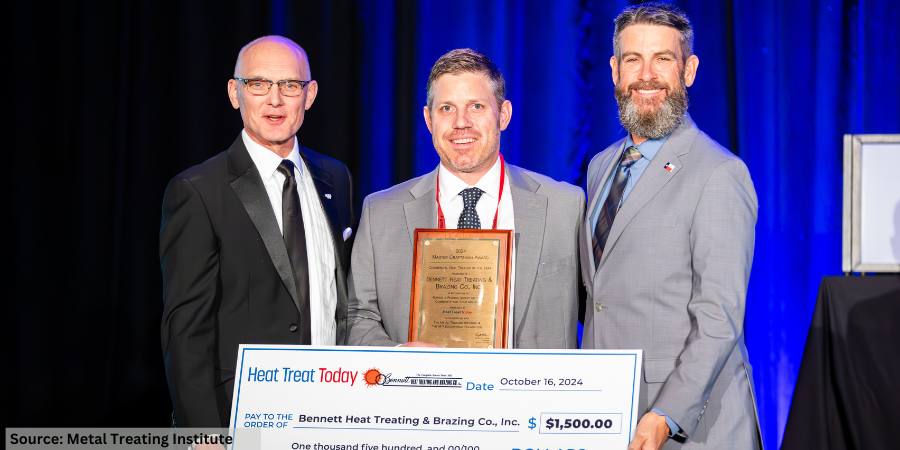“When it comes to who should lose their jobs because of changing times, I’d much rather leave the decision up to the market and millions of individual decisions being made independently around the world . . .”
Heat Treat Today publishes eight print magazines a year and included in each is a letter from the publisher, Doug Glenn. This letter first appeared in the May 2024 Sustainable Heat Treat Technologies print edition.
To prove that it is not, I’d like you to meet Mr. Isaac Chan, a DOE employee. Mr. Chan, whom I met in March of this year at an Industrial Heating Equipment Association Annual Spring Meeting is a genuinely nice person with no ill intent toward any living soul. He is also the program manager at the DOE’s Office of Industrial Efficiency and Decarbonization.
Let’s pause for just a moment before we talk more about Mr. Chan and acknowledge that the name of this DOE Office, “Industrial Efficiency and Decarbonization,” will be, in some specific cases, an oxymoron. In specific industries, given the best available technologies (BAT), mandated decarbonization would cause industrial inefficiency.
Back to Mr. Chan. As I’ve stated, he is a very nice person, but the job he and hundreds of others at the DOE are being paid to do with taxpayer dollars is explicitly targeted at changing the energy composition of U.S. industry with the undeniable effect of putting many, if not all, combustion processes in the ash heap of history along with all those employed therein.
On the fourth slide of a presentation entitled, “Cross Sector Technologies Meeting: Day 2, Next-Generation Enabling Technologies,” presented by Mr. Chan on May 30, 2023, we find the following:
- DOE Commitment to Industrial Decarbonization (slide title)
- “Industrial Heat Shot™ — Developing technologies to reduce process heating GHG emissions by 85% by 2035”
- “Industrial Decarbonization Roadmap — Net-zero CO2 emissions by 2050”
The same slide goes on to list four international organizations that the U.S. has joined to “decarbonize” energy-intensive industries. Those four organizations are:
- Net-Zero World Initiative
- G7 Industrial Decarbonization Agenda
- Mission Innovation’s Net-Zero Industries Mission
- UNIDO’s coordinated Industrial Deep Decarbonization Initiative
Who Decides
The issue here is who decides if the world will decarbonize or not. I personally have no axe to grind on whether combustion people stay employed or not. Economies change. Energy sources change. People in those industries lose and gain jobs. And assuming these changes are the result of millions of decisions freely made by millions of individuals daily, we can safely consider these changes to be progress. But when a change from one fuel to another — gas to electricity or carbon to no carbon fuels in this case — is pushed from the top down, when it is forced on us by “guideline” or “mandate” using our own money, that is not progress.
The market should decide. A free, unfettered market where millions of people make decisions daily is a more reliable indicator of what the people want than the well-meaning individuals in the DOE — no disrespect to any of these good people.
When it comes to who should lose their jobs because of changing times, I’d much rather leave the decision up to the market and millions of individual decisions being made independently around the world, than to a small group of well-meaning individuals who believe they know what is best for the world.
Let’s let the market do what it does so well. Let the market choose the winners and losers.






